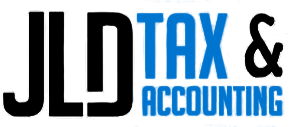NY Schedule C Audits
Businesses that operate as a sole proprietorship or as a single-member limited liability company need to file a Schedule C on their individual income tax return. This schedule shows the revenue and deductions for your business for the year while calculating its net taxable income. When filing a Schedule C for your taxes it is best to be prepared for the possibility of an audit. The experienced professionals at JLD Tax & Accounting will work with you so you can better understand and learn about the auditing process.
What is a schedule C audit?
The IRS or NY State will perform a Schedule C audit if they suspect a discrepancy on a business owner’s tax return. If the IRS requests for a Schedule C audit you will then be require to hand over all your bank and credit card statements, receipts and explanations of all travel and entertainment expenses. It is important to keep any and all documents that pertain to your tax returns for a least three prior years so that you can clearly verify what you claimed on the return.
Schedule C audits have become more common. The IRS and NY State are finding that many profit and loss statements do not reflect the actual business done by a company. The common culprit for a Schedule C audit is the co-mingling of personal and business spending. If your expenses are properly categorized and you have retained all receipts of your transactions, you can navigate the Schedule C audit without hassle.
Who Does A Schedule C Audit Apply to?
If you are the owner of the business you will be the only person responsible of the Schedule C audit. The IRS takes an interest in businesses that show significant loss on a Schedule C filing. if your business shows a loss for 2 years in a row the IRS or NY State will most likely audit. The IRS will audit to be sure that the business is trying to make a profit.
How can I avoid a Schedule C audit of my tax return?
If you’re a business owner and you file a Schedule C it is important to be truthful about your income and expenses. It is important to keep your finances in order but most specifically, keeping your individual and business expenses separate. Even when owning multiple businesses, it’s best to keep your income and deductions separate by entity.


